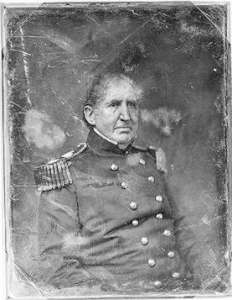Ichabod Crane Takes Modern Banking to Task
Thursday, October 16, 2014 by Jonathan R. Gibbons inFox’s “Sleepy Hallow” is a creative show which has found a way to incorporate a time traveling American Founding Father who provides hysterical commentary on current American idiocies (i.e. every political science and American history scholar’s wet dream), into a plot based on Washington Irving’s classic short story “The Legend of Sleepy Hallow”. Writer’s Mark Goffman and Albert Kim brilliantly provide a critique of modern banking and monetary policy in Season 2 Episode 2, “The Kindred”.
Ichabod Crane, played by Tom Mison, goes on a rant when a bank representative tries to offer him a credit card, “It is this kind of gross invitation to indulgence that mocks the power of the invisible hand to foster the true wealth of nations.” Thomas Jefferson is also quoted in the scene as having said, “I believe that banking institutions are more dangerous to our liberties than standing armies.” This is most likely an authentic quote despite the often spurious forms it takes.
Regardless of Goffman and Kim’s possible intentions behind the script, let’s dissect this brilliant quote:
“It is this kind of gross invitation to indulgence that mocks the power of the invisible hand to foster the true wealth of nations.”
Watch the scene below ↓↓ If it doesn’t make you laugh hard… read on.
Gross invitation to indulgence is an excellent way to describe the over-abundance of credit– made artificially available through the Federal Reserve and fractional-reserve banking –which Americans utilize to satisfy their insatiable appetite for instant gratification. It’s common to hear someone say, “I just bought my first house,” or “I bought a new car.” In reality, what the majority of people are really saying is, “I just signed a deal with a bank to be their debtor for the next thirty years so that I can live in a fancy house and drive a fancy car despite my having not truly earned enough wealth to acquire such luxuries.”
The invisible hand is a reference to Adam Smith’s The Wealth of Nations. The invisible hand is the natural underlying regulation that takes place within a free market. There are many examples of natural free market regulations but the most relevant example for this particular issue is the concept of collateral. Borrowers naturally regulate themselves by putting up collateral to appease concerns held by the lender.
Unfortunately the current banking system is the furthest thing from a capitalist system. It’s one of the most centrally controlled and manipulated economic markets in the history of commercial exchange. As monetary economist Jesus Huerta de Soto explained in 2011:
There is no free market in the monetary and banking system but just the opposite: private money has been nationalized, legal tender rules introduced, a huge mess of administrative regulations enacted, the interest rate manipulated and, most importantly, everything is directed by a monetary central-planning agency: the central bank. (de Soto, 2011, p. 81)
In short, the current banking system provides credit that wouldn’t exist in a true market where realistic risk and sound monetary practices were present.
Too many people don’t actually buy things in the American economy anymore, instead banks buy things and then people serve the banks the rest of their lives by paying bank fees. Capitalism involves learning how to make your money work for you, not working for your money to pay wage vultures. The sooner Americans realize this, and the sooner the banks are stricken of their monopolistic power, the sooner there will be more real prosperity in America. This issue is one of the core problems with the American economy. Capitalism is not to blame. A crony-capitalist banking system and greedy consumers are to blame. Consumers who prefer instant gratification over hard work, savings, and investment; those activities which foster the true wealth of nations.
PS: you should really watch this show. It’s the perfect mix of intellectual comedic relief with fantasy.
Sources:
de Soto, J. 2011. “Economic Recessions, Banking Reform And The Future of Capitalism”. Economic Affairs, 31(2), 76-84.
Sleepy Hallow. Official Website.
Smith, Adam. 1776. An Inquiry Into the Nature and Causes of the Wealth of Nations. http://www2.hn.psu.edu/faculty/jmanis/adam-smith/wealth-nations.pdf.
Thomas Jefferson Foundation, Inc. http://www.monticello.org/site/jefferson/private-banks-quotation




























